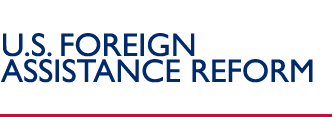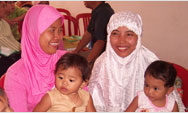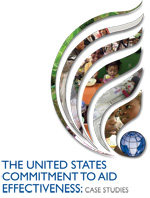The United States Commitment to Aid Effectiveness
Third High Level Forum on Aid Effectiveness
Accra, Ghana - September 2-4, 2008
The United States of America is the single largest bilateral provider of foreign assistance.
However, as large as this commitment is, the United States believes that simply providing
increased resources will not, in and of itself, reduce global poverty, eliminate diseases, increase global food
security or stimulate economic growth in the developing world. In addition to increasing the resources for
foreign assistance, the United States is also firmly committed to improving the quality
of its aid in order to maximize development benefits. In this spirit, the United States in 2005 endorsed the
Paris Declaration on Aid Effectiveness, which in its key principles called for an increase in partner country
ownership, alignment of donor resources with partner country development priorities, harmonization of
donor assistance, management for results, and increased accountability for development results.
Introduction
As a result of this commitment, the major U.S.
Government agencies that manage the bulk of U.S.
foreign assistance have implemented significant
policy and operational changes both centrally and
in field offices to increase the effectiveness of their
assistance.
The United States action agenda to strengthen the
effectiveness of its foreign assistance is based on the
five principles of the Paris Declaration on Aid
Effectiveness:
- Ownership: Partner countries exercise effective
leadership over their development policies and
strategies, and coordinate
development actions.
- Alignment: Donors base their overall support
on partner countries’ national development strategies,
institutions, and procedures.
- Harmonization: Donors’ actions are
more harmonized, transparent, and
ollectively effective.
- Managing for results: Managing resources and
improving decision making for development results.
- Mutual accountability: Donors and partners
are accountable for development results.
More Information:
Back to Top ^
|



